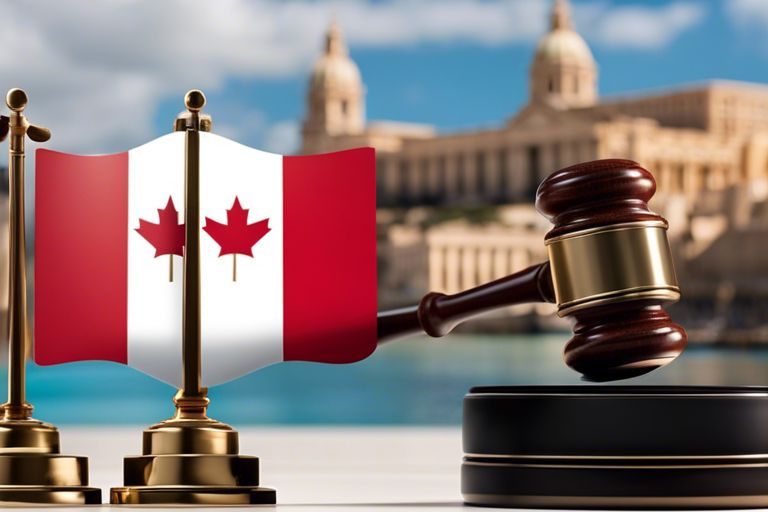Malta’s Legal Framework – A Primer

There’s a complexity to Malta’s legal framework that is crucial for both residents and visitors to understand. This guide aims to provide a comprehensive overview of the legal landscape in Malta, outlining key laws and regulations that shape the everyday lives of individuals in the country. By gaining insight into Malta’s legal system, readers can navigate issues such as employment rights, taxation, property ownership, and business operations with confidence. Whether you’re a newcomer to Malta or a longtime resident, this primer will equip you with the knowledge needed to engage with the legal aspects of Maltese society effectively.
Historical Development of Maltese Law
Pre-Independence Legislation
Ancient Malta was ruled by various civilizations which left a mark on its legal system. The earliest known legal code was the Carta Rogeriana enacted in the 12th century, under Norman rule. This was followed by the publication of the Constitutions of the Order of St. John, implemented during the Hospitaller period. These laws regulated various aspects of Maltese life, including social stratification, punishments for crimes, and property rights.
Post-Independence Reforms
After achieving independence in 1964, Malta underwent significant legal reforms to modernize its legal system. One of the most important changes was the adoption of a written constitution which established the fundamental rights and duties of citizens, as well as the structure of government. Additionally, the Civil Code was revised to align with contemporary legal norms, and new laws were enacted to regulate emerging areas such as technology and commerce.
Maltese legal system has evolved over centuries, blending influences from various conquerors and rulers. The Pre-Independence Legislation reflects the ancient roots of Maltese law, while the Post-Independence Reforms signify a shift towards a more modern and progressive legal framework.
The Constitution of Malta
Fundamental Rights and Freedoms
Fundamental rights and freedoms are enshrined in the Constitution of Malta, guaranteeing the protection of individual liberties and equality for all citizens. These include the right to life, liberty, security, and the right to a fair trial. Malta’s Constitution firmly establishes the protection of these fundamental rights as a cornerstone of its legal framework.
The Structure of Government
Government in Malta operates within a parliamentary representative democratic republic. The President of Malta serves as the head of state, while the Prime Minister leads the government. The Maltese Parliament, known as the House of Representatives, is responsible for making laws and overseeing the government’s actions. This structure ensures a system of checks and balances, promoting accountability and transparency in governance.
Judiciary and Legal Institutions
Judicial Hierarchy and Court System
Many countries have a hierarchical structure for their judiciary, and Malta is no exception. The Maltese judicial system is divided into several levels, with the Constitutional Court at the top, followed by the Civil Courts, Criminal Courts, and Inferior Courts. This organized system ensures that legal matters are handled effectively and efficiently.
Legal Professionals and Bodies
Institutions play a pivotal role in the Maltese legal framework. The Chamber of Advocates is one such institution that oversees the practice of lawyers in Malta, ensuring compliance with ethical standards and providing support to legal professionals. Additionally, the Attorney General’s Office serves as the legal advisor to the government and represents public interest in legal matters.
Legal professionals in Malta are held to high ethical standards and are required to uphold the integrity of the legal system. The Chamber of Advocates and the Attorney General’s Office play crucial roles in maintaining the professionalism and ethical conduct of legal practitioners, ensuring that justice is served and the rule of law is upheld.
Key Areas of Maltese Law
Commercial and Corporate Law
One of the key areas of Maltese law is Commercial and Corporate Law, which governs businesses and companies operating within the Malta jurisdiction. This area of law is crucial for regulating trade, commerce, and corporate activities in a transparent and efficient manner.
Criminal Law and Public Order
Criminal Law and Public Order are necessary components of the Maltese legal system, ensuring that individuals and society are protected from criminal activities. This area of law defines criminal offenses, penalties, and procedures for maintaining public order.
OrderBeing a law-abiding citizen and understanding the regulations outlined in Criminal Law and Public Order is imperative for a harmonious society.
Civil and Family Law
Civil and Family Law in Malta covers various aspects, including contracts, property rights, marriage, divorce, and inheritance. These laws establish the rights and obligations of individuals in matters of personal and family relationships.
PublicUnderstanding Civil and Family Law is necessary for navigating legal issues related to personal relationships and property rights.
Maritime and Aviation Law
To ensure the smooth operation of maritime and aviation activities within the Maltese territory, specific laws govern these sectors. For instance, Malta is known for its robust maritime laws that attract ship registration and financing activities.
AreasMalta’s Maritime and Aviation Law plays a crucial role in regulating the maritime and aviation sectors, contributing significantly to the Maltese economy.
Taxation and Financial Services
An integral part of the legal framework in Malta is Taxation and Financial Services law, which governs the taxation of individuals and businesses, as well as financial services providers. This area of law ensures compliance with tax regulations and promotes a stable financial system.
AreasUnderstanding Taxation and Financial Services law is necessary for individuals and businesses to effectively manage their financial affairs and stay compliant with tax regulations.
Recent Legal Developments
EU Membership and Legal Harmonization
To ensure alignment with European Union standards and regulations, Malta has made significant strides in legal harmonization since joining the EU in 2004. Legal frameworks have been updated to comply with EU directives, ensuring a more cohesive and standardized approach to governance and trade within the bloc.
Technological Advancements and Law
Harmonization between technological advancements and law has been a key focus in recent legal developments in Malta. This includes regulations surrounding data protection, cybersecurity, and e-commerce, reflecting the government’s commitment to adapting laws to keep pace with rapidly evolving technologies.
This proactive approach has not only safeguarded the interests of businesses and individuals but has also positioned Malta as a forward-thinking jurisdiction that attracts tech-savvy entrepreneurs and investors looking for a secure and innovative legal environment.
Conclusion
Now that we have explored Malta’s legal framework in this primer, it is clear that the country offers a robust and comprehensive system that is designed to protect individuals, businesses, and investors alike. The combination of Maltese laws, EU directives, and international conventions creates a solid foundation for legal stability and clarity. Understanding and navigating this legal framework is crucial for anyone looking to engage with Malta’s economy or legal system, and the resources and support available make it accessible for those seeking to do so.
FAQs:
What are the fundamental rights guaranteed by Malta’s Constitution?
Malta’s Constitution guarantees fundamental rights such as the right to life, liberty, security, and a fair trial, ensuring protection for all citizens.
How is Malta’s government structured?
Malta operates under a parliamentary representative democratic republic, with the President as head of state and the Prime Minister leading the government.
What are the key areas of Maltese law covered in this guide?
This guide covers key areas such as Commercial and Corporate Law, Criminal Law, Civil and Family Law, Maritime and Aviation Law, and Taxation and Financial Services law.
What role do legal institutions play in Malta’s legal framework?
Legal institutions like the Chamber of Advocates and the Attorney General’s Office play crucial roles in overseeing legal practice, maintaining ethical standards, and representing public interest.
How has Malta adapted its legal framework to technological advancements?
Malta has updated its laws to address technological advancements, particularly in areas such as data protection, cybersecurity, and e-commerce, ensuring a secure and innovative legal environment.
Recommended Posts

Stargazing Locations in Malta
May 1, 2024

Accounting in Malta – Trends and Updates
May 1, 2024

Unveiling the Sustainable Gambling Zone
May 1, 2024
